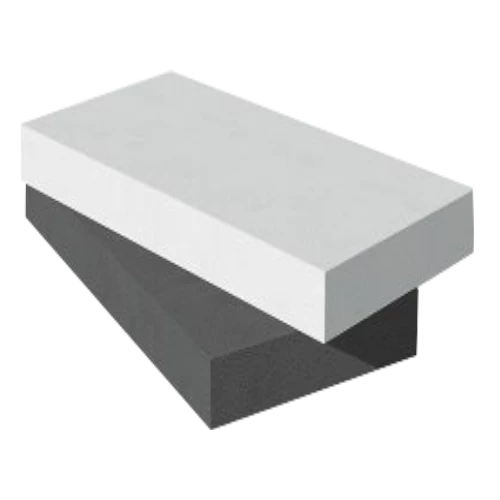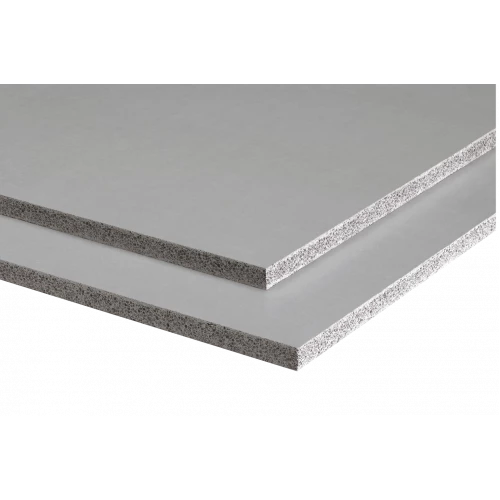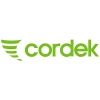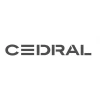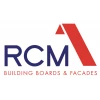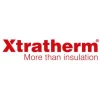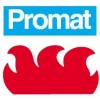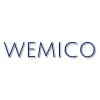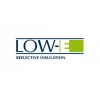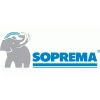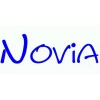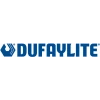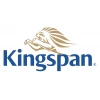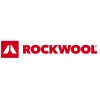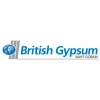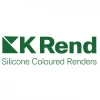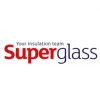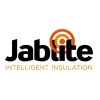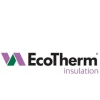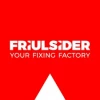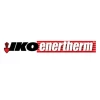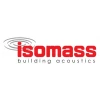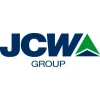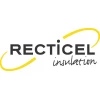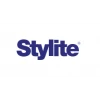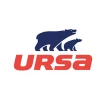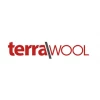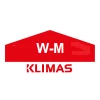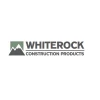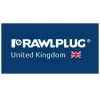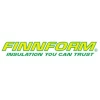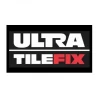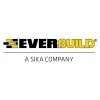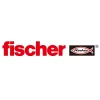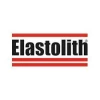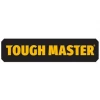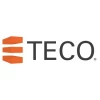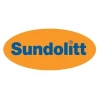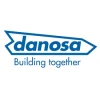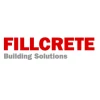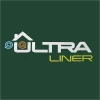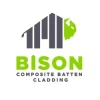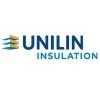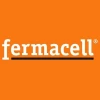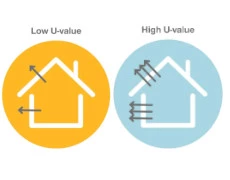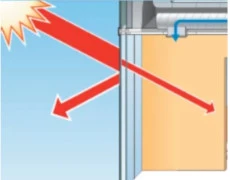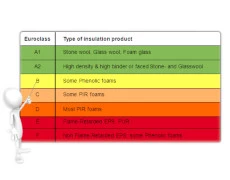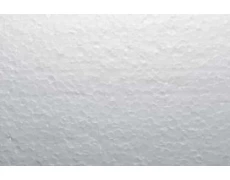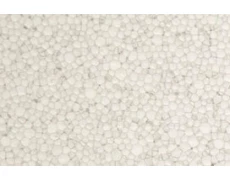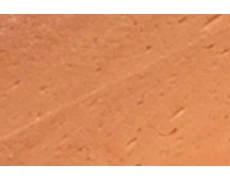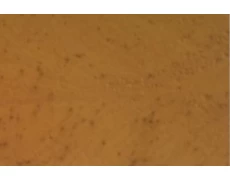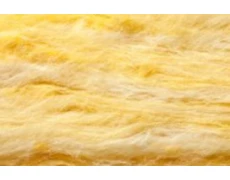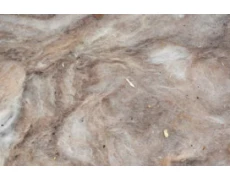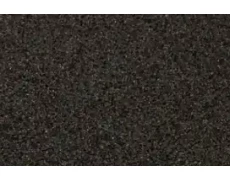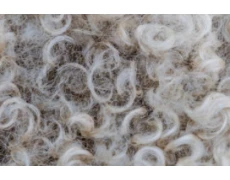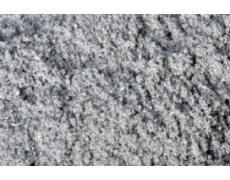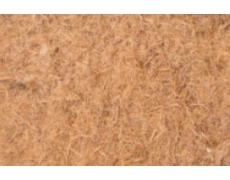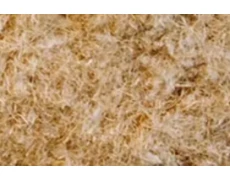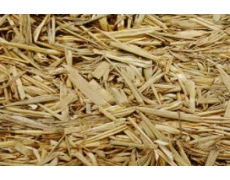
KINGSPAN vs ROCKWOOL. A COMPARISON OF THERMAL INSULATION PERFORMANCE*
As energy efficiency becomes increasingly important in homes and buildings, the demand for high-quality insulation has grown. With so many options on the market, it can be difficult to determine which insulation material is the best fit for your project. In this article, we'll explore two popular insulation materials: Kingspan and Rockwool. We'll compare and contrast the two, examining their differences in composition, efficiency, and soundproofing capabilities. We'll also delve into whether Rockwool or Kingspan is the better option for thermal insulation, as well as other important factors to consider when selecting an insulation board. By the end of this guide, you'll have a better understanding of the strengths and weaknesses of each material, and be able to make an informed decision when it comes to insulating your space.
 Table of contents:
Table of contents:
KINGSPAN VS ROCKWOOL: A COMPARISON OF THERMAL INSULATION PERFORMANCE
ROCKWOOL VS KINGSPAN: WHICH COMPANY HAS MORE EXPERIENCE IN THE INSULATION INDUSTRY?
WHAT IS THE DIFFERENCE BETWEEN ROCKWOOL AND KINGSPAN?
ROCKWOOL AND KINGSPAN: STRENGTHS AND WEAKNESSES OF EACH MATERIAL
WHAT IS THE DIFFERENCE BETWEEN ROCKWOOL AND KINGSPAN?
KINGSPAN OR ROCKWOOL FOR SOUNDPROOFING
FIBERGLASS INSULATION VS KINGSPAN
IS ROCKWOOL GOOD FOR THERMAL INSULATION?
IS KINGSPAN THE BEST INSULATION?
WHAT IS THE MOST EFFICIENT INSULATION BOARD?
UK INSULATION COMPARISON CHART
CONCLUSION
ROCKWOOL VS KINGSPAN: WHICH COMPANY HAS MORE EXPERIENCE IN THE INSULATION INDUSTRY?
 Both Rockwool and Kingspan are well-established companies with a long history of providing high-quality insulation solutions. Rockwool was founded in Denmark in 1909 and has since become a leading manufacturer of stone wool insulation worldwide. Kingspan was founded in Ireland in 1965 and has grown to become a global leader in insulation and building solutions.
Both Rockwool and Kingspan are well-established companies with a long history of providing high-quality insulation solutions. Rockwool was founded in Denmark in 1909 and has since become a leading manufacturer of stone wool insulation worldwide. Kingspan was founded in Ireland in 1965 and has grown to become a global leader in insulation and building solutions.
Both companies have a wealth of experience and expertise in the insulation industry, and have developed innovative products and technologies over the years. Ultimately, the choice between the two will depend on the specific needs of your project and the performance characteristics of their respective insulation products.
Kingspan has developed various innovative products for insulation purposes, including the Kooltherm range, which is a high-performance, thin insulation material that can help reduce energy consumption in buildings. They have also developed the OPTIM-R range, which is a vacuum insulation panel designed to provide high levels of insulation with minimal thickness.
Celotex, on the other hand, has developed products such as the TB4000 range, which is a high-performance insulation board designed for use in a variety of applications, including roofs, walls, and floors. They have also developed the XR4000, range, which is an enhanced thermal performance insulation board specifically designed for use in pitched roofs and floors. The XR4000 range boasts superior thermal insulation properties compared to the TB4000 range, making it a popular choice for those looking to maximize energy efficiency and reduce heating costs.
Celotex prides itself on its commitment to sustainability and environmental responsibility. They use sustainable materials in their products and have implemented a number of initiatives to reduce their carbon footprint and minimize waste.
Celotex is a trusted brand in the construction industry, offering a wide range of high-performance insulation and building solutions for both residential and commercial applications. Their focus on sustainability and environmental responsibility sets them apart from other companies in the industry and makes them a popular choice for those looking to reduce their environmental impact while still achieving superior insulation performance. For more information on insualtion history click here.
WHAT IS THE DIFFERENCE BETWEEN ROCKWOOL AND KINGSPAN?
 Rockwool and Kingspan are two of the most popular insulation materials used today. They have a few key differences that make them unique in their own way. The main difference between Rockwool and Kingspan is their composition.
Rockwool and Kingspan are two of the most popular insulation materials used today. They have a few key differences that make them unique in their own way. The main difference between Rockwool and Kingspan is their composition.
Rockwool is made from natural rock, primarily basalt and diabase, which are melted down and spun into fibres. On the other hand, Kingspan is made from polyisocyanurate foam, which is a type of rigid plastic.
Another key difference between the two is their efficiency. Kingspan has a higher R-value (the measure of thermal resistance) per inch than Rockwool, making it a better insulator for use in the UK where energy efficiency standards are high. However, Rockwool has the advantage of being more fire-resistant than Kingspan, which is important in certain applications. It's also a good choice for soundproofing due to its ability to absorb sound waves. Overall, the choice between Rockwool and Kingspan will depend on the specific needs of your project, as well as your budget and personal preferences.
ROCKWOOL AND KINGSPAN: STRENGTHS AND WEAKNESSES OF EACH MATERIAL
 When it comes to choosing between Rockwool and Kingspan for insulation purposes, it is important to consider the strengths and weaknesses of each material. Here are some key factors to keep in mind:
When it comes to choosing between Rockwool and Kingspan for insulation purposes, it is important to consider the strengths and weaknesses of each material. Here are some key factors to keep in mind:
Rockwool
Strengths:
-Excellent sound insulation properties
-Resistant to fire and moisture
-Made from natural and recyclable materials
Weaknesses:
-Lower R-value compared to other insulation materials
-Can be difficult to cut and shape
Kingspan
Strengths:
-High R-value for excellent thermal insulation
-Easy to cut and shape
-Resistant to moisture and pests
Weaknesses:
-Can be more expensive than other insulation materials
-Not as effective at sound insulation compared to Rockwool
KINGSPAN OR ROCKWOOL FOR SOUNDPROOFING
 Both Kingspan and Rockwool are popular choices for soundproofing applications. However, each material has its own unique set of properties and benefits.
Both Kingspan and Rockwool are popular choices for soundproofing applications. However, each material has its own unique set of properties and benefits.
Kingspan insulation boards are known for their high thermal insulation properties, but they also have good sound absorption capabilities. Kingspan's Kooltherm K-range is particularly effective at reducing noise transmission, and it is often used in commercial buildings and music studios where sound quality is important. The K-range has a core of rigid phenolic insulation foam that provides good acoustic insulation, in addition to its thermal insulation properties.
Rockwool, on the other hand, is specifically designed for acoustic insulation. Rockwool insulation is made from natural stone fibres that trap and absorb sound waves, reducing their transmission through walls and floors. Rockwool is often used in residential and commercial construction projects where noise pollution is a concern, such as apartments, hospitals, and schools.
When deciding between Kingspan and Rockwool for soundproofing, it is important to consider the specific needs of your project. If you require both thermal insulation and sound absorption, Kingspan's K-range may be a good choice. However, if soundproofing is your primary concern, Rockwool may be the better option.
Read more: Kingspan product range.
Read more: Rockwool acoustic slabs.
FIBERGLASS INSULATION VS KINGSPAN
When it comes to choosing between fibreglass insulation and Kingspan insulation, there are several factors to consider. Here are some of the key differences between the two:
- Thermal performance - Kingspan insulation typically has a higher R-value per inch than fibreglass insulation, which means it provides better thermal performance for a given thickness.
- Moisture resistance - Kingspan insulation is moisture resistant, while fibreglass insulation can absorb moisture, which can lead to mould and mildew growth.
- Fire resistance - Kingspan insulation is fire resistant, while fibreglass insulation is flammable and can contribute to the spread of fires.
- Sound insulation - Kingspan insulation is better at sound insulation than fibreglass insulation due to its denser composition.
- Environmental impact - Fibreglass insulation is made from non-renewable resources, while Kingspan insulation is made from recycled materials and has a lower environmental impact.
Ultimately, if you prioritise thermal performance and sound insulation, Kingspan insulation may be the better choice. If you're looking for a more affordable option or have environmental concerns, fibreglass insulation may be a better fit.
IS ROCKWOOL GOOD FOR THERMAL INSULATION?
 Rockwool is a brand name for a type of mineral wool insulation that is made from natural rock fibres. The name "Rockwool" is derived from the materials used to make the insulation, which include rocks. Rockwool insulation stands out from other insulation materials due to its unique composition. Unlike many other insulation materials which are made from synthetic materials, Rockwool insulation is made from natural rock, primarily basalt and diabase, which are melted down and spun into fibres.
Rockwool is a brand name for a type of mineral wool insulation that is made from natural rock fibres. The name "Rockwool" is derived from the materials used to make the insulation, which include rocks. Rockwool insulation stands out from other insulation materials due to its unique composition. Unlike many other insulation materials which are made from synthetic materials, Rockwool insulation is made from natural rock, primarily basalt and diabase, which are melted down and spun into fibres.
This means that Rockwool insulation is not only highly effective at thermal insulation, but is also a more environmentally friendly option compared to some other materials. Additionally, the manufacturing process used to make Rockwool insulation is energy efficient and generates very little waste, further reducing its environmental impact.
Rockwool insulation has a number of other benefits. For example, it is fire-resistant, so it can help to prevent the spread of flames in the event of a fire.
It is also a good sound absorber, which makes it an ideal choice for soundproofing. Moreover, Rockwool is a versatile and effective insulation material that can be used in a variety of applications to improve energy efficiency and comfort in buildings.
Overall, the natural composition of Rockwool insulation is one of its many advantages, making it a popular choice for those who are looking for a more sustainable and eco-friendly insulation option. However, there are also some potential drawbacks to using mineral wool insulation. For example, it can be more expensive than other types of insulation such as fibreglass.
IS KINGSPAN THE BEST INSULATION?
 Kingspan is a well-known manufacturer of insulation products, and their Kooltherm and Therma products are popular choices for thermal insulation in the UK. While Kingspan insulation is certainly a high-quality product, whether or not it is the "best" insulation option depends on a number of factors.
Kingspan is a well-known manufacturer of insulation products, and their Kooltherm and Therma products are popular choices for thermal insulation in the UK. While Kingspan insulation is certainly a high-quality product, whether or not it is the "best" insulation option depends on a number of factors.
One factor to consider is the R-value of the insulation, which is a measure of its thermal resistance. Kingspan insulation generally has a high R-value, which means that it is very effective at preventing heat loss. However, there are other types of insulation that may have a higher R-value or be more cost-effective, depending on the specific requirements of your project.
Another factor to consider is the environmental impact of the insulation. Kingspan Kooltherm and Therma products are made from a type of rigid foam insulation, which is not as environmentally friendly as some other types of insulation. Some people may prefer to use insulation materials that are made from recycled or renewable materials, such as cellulose or sheep's wool.
Finally, cost is an important consideration when choosing insulation. Kingspan insulation tends to be more expensive than some other types of insulation, such as fiberglass or mineral wool insulation. While it may be worth the investment in some cases, it may not be the most cost-effective option for every project.
Overall, while Kingspan insulation is certainly a high-quality product, it may not necessarily be the best insulation option for every project. The right insulation for your project will depend on a variety of factors, including your budget, energy efficiency needs, and personal preferences. It's important to consider all of these factors when selecting insulation for your home or building.
Read more: How to cut rigid foam insulation.
WHAT IS THE MOST EFFICIENT INSULATION BOARD?
 When it comes to selecting an insulation board for your home or building, there are several factors to consider in order to determine which option is the most efficient. Some of the factors to consider include thermal resistance, cost and ease of installation.
When it comes to selecting an insulation board for your home or building, there are several factors to consider in order to determine which option is the most efficient. Some of the factors to consider include thermal resistance, cost and ease of installation.
Thermal resistance is a key consideration when choosing insulation, as it measures how effective the insulation is at preventing heat loss. The higher the R-value of the insulation board, the more efficient it will be at insulating your space. Some of the most efficient insulation boards on the market today include those made from polyisocyanurate foam, which have high R-values and are ideal for use in walls and roofs.
Cost is another important consideration when selecting an insulation board, as some materials can be more expensive than others. Polyisocyanurate foam insulation boards are often more expensive than other types of insulation, such as fibreglass or mineral wool insulation. However, they may be worth the investment in the long run due to their superior thermal resistance and energy efficiency.
When it comes to ease of installation, some insulation boards are easier to work with than others. For example, rigid foam insulation boards, such as those made from expanded polystyrene (EPS) or extruded polystyrene (XPS), are often preferred by contractors because they are lightweight and can be easily cut to fit irregularly shaped spaces.
Another type of insulation board that is known for its ease of installation is mineral wool insulation. Mineral wool insulation boards are made from natural rock or slag fibres and are available in batts or boards that can be easily installed in walls, ceilings, and floors. Mineral wool insulation boards are also non-combustible and have excellent sound absorption properties, making them a popular choice for residential and commercial projects.
On the other hand, fibreglass insulation boards can be more difficult to work with due to their tendency to shed tiny fibres that can irritate the skin and lungs. Additionally, fibreglass insulation boards can be difficult to cut and shape, which can slow down the installation process and add to labour costs. To find out how to cut mineral wool insualtion click here. For best loft roll insulation click here.
Ultimately, the ease of installation is an important consideration when choosing an insulation board, as it can impact both the cost and timeline of a project. By selecting an insulation board that is easy to work with and install, you can save time and money while ensuring that your building is properly insulated for maximum energy efficiency and comfort.
Overall, when selecting the most efficient insulation board, it's important to consider all of these factors and choose a product that meets your specific needs and requirements. While polyisocyanurate foam insulation boards are often considered to be among the most efficient, they may not be the best choice for every project. Be sure to do your research and select a high-quality insulation board that will provide the energy efficiency and cost savings you need for your home or building.
UK INSULATION COMPARISON CHART
An insulation comparison chart for the UK can be a useful tool to compare different types of insulation based on their properties and performance. Here are some common types of insulation found in the UK and their key characteristics:
Fibreglass insulation - Fiberglass insulation is one of the most common types of insulation used in the UK. It is made from fine glass fibres and is often used in walls, floors, and ceilings. It is lightweight, easy to install, and has good thermal insulation properties.
Rockwool insulation - Rockwool insulation is made from natural stone fibres and is an excellent choice for both thermal and acoustic insulation. It is fire-resistant, durable, and has excellent sound absorption capabilities.
Sheep's wool insulation - Sheep's wool insulation is a natural, sustainable insulation option that is becoming increasingly popular in the UK. It has excellent thermal insulation properties and is breathable, helping to regulate moisture levels in a building.
Cellulose insulation - Cellulose insulation is made from recycled paper and is treated with fire retardants to improve its fire resistance. It is a good option for insulating walls, floors, and roofs.
Polyurethane foam insulation - Polyurethane foam insulation is a popular choice for insulating walls, roofs, and floors. It is easy to install, has good thermal insulation properties, and is resistant to moisture.
For more information on best insulation boards click here.
CONCLUSION
In conclusion, both Kingspan and Rockwool have their own unique advantages and can provide effective thermal insulation solutions. Kingspan has a higher R-value per inch and is more moisture-resistant, while Rockwool is made from natural materials and has excellent soundproofing properties. Ultimately, the choice between the two will depend on the specific needs of your project, such as the required R-value, moisture resistance, soundproofing, and fire safety. By considering these factors and consulting with a professional, you can make an informed decision on which insulation board is best suited for your needs
Realted articles:
Cheaper alternative to Kingspan products
How to estimate how much insulation you need?
Unfaced insulation, change before you have to!
Top tips on how to install foil faced insulation
Should I remove 80 years old insulation?
Mineral wool insularion. The ugly truth?
Rockwool heavey duty insulation slabs
*All the information provided in the content published on Insulationgo blog is for informational and educational purposes only. Insulationgo LTD makes every effort to ensure the accuracy and timeliness of the content, but we do not assume any responsibility for any errors or omissions.
The information presented on this blog should not be considered as professional advice or a substitute for consulting relevant experts. Before making any purchase decisions or taking action based on the information presented here, it is strongly recommended to contact the product manufacturer directly to verify the details and ensure its suitability for your specific needs.
By using this blog, you acknowledge and agree that Insulationgo LTD shall not be held liable for any damages, losses, or inconveniences arising from the use or reliance on the information provided herein. This limitation of liability applies to all users of the blog, including but not limited to visitors, readers, and subscribers.











